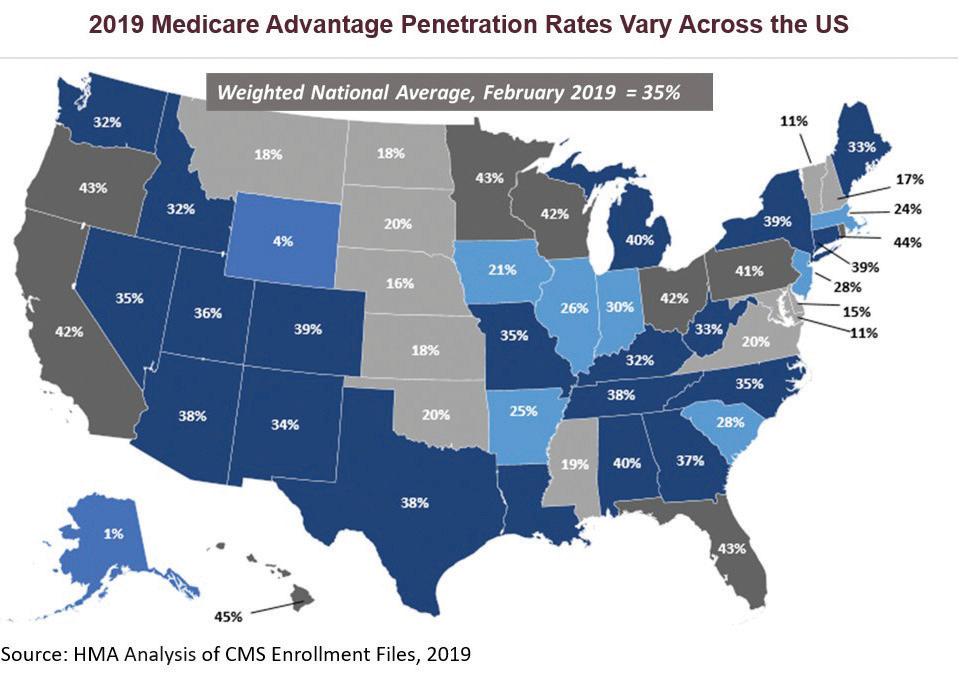
3 minute read
Supporting Members through Major Industry Changes By Connie Cheren, Regulatory and Compliance Specialist, LeadingAge Florida
Supporting Members through Major Industry Changes
18 By Connie Cheren Regulatory and Compliance Specialist, LeadingAge Florida
The year 2019 will be remembered by those of us who work in longterm care as the year of change.
It seemed every month there was some new initiative that providers had to implement. It brought PDPM, Medicaid PPS, Phase Three of the Mega Rule, and changes in the quality measures.
The year ended with CMS announcing the posting of an icon on Nursing Home Compare for facilities with citations of deficiencies related to abuse, neglect or exploitation. The icon posting brings a lowering to two stars in the health inspections category, with a cap of four stars overall, which can have a devastating impact on a facility.
Coupled with all the changes came what appeared to be more aggressive surveys with deficiencies cited at a higher scope and severity. There were 37 immediate jeopardy citations in Florida between October 2018 and June 2019. It seemed compliance no longer meant substantial compliance. Instead, we saw many deficiencies cited for one-time observations, and many of these observations did not have a negative resident outcome.
Surveyors seemed to no longer look for patterns of deficient practices, and it seemed that resident outcomes were not taken into consideration when deficiencies were cited. To address these changes, LeadingAge Florida implemented several initiatives to help members. We let our members know that I am available to answer regulatory questions throughout the year and during survey if needed. Thankfully, I was able to help several members with successful informal dispute resolutions.
In addition, we published actual deficiencies every Friday with a corresponding article in our LeadingLink newsletter on suggestions to avoid these citations. We also set up bi-weekly conference calls with our members to discuss regulatory issues. I personally helped several of our members prepare for survey and was on site for their surveys. I saw first hand the intense scrutiny surveyors are giving the clinical record. As we know, change is the word that best describes long-term care right now, and some of these changes have a significant impact on the daily operations of providers. Quality and compliance is a year-round, ongoing effort. When staff understand the regulations and have systems in place, any changes will be less stressful.
In 2020 and beyond, should we re-think how staff are assigned responsibilities? It seems it may be impossible to avoid deficiencies unless the care plan addresses all of a resident’s needs, and the clinical record is “perfect,” and the resident has no unresolved complaints.
To achieve this, I believe it will take getting nurses to the bedside and assuming total responsibility for the resident from admission, completion of the MDS, care planning and documentation. The more information placed on the MDS (i.e., quality measures, reimbursement, etc.), the more nurses have to be pulled from the bedside to offices to complete the MDS, leaving a higher resident-to-nurse ratio on the floor. Nurses may be completing tasks for the residents (i.e., passing medications, doing treatments, etc.) while CNAs complete tasks such as bathing and dressing, but it will take more than task completion to ensure compliance with all the regulatory and documentation requirements. A combination of auditing, tracking, rounding and measuring your outcomes is required.
What will 2020 bring? Now that the Mega Rule has been completely implemented, will a new, even bigger rule be phased in over three years? Will the Medicaid PPS recognize the quality indicators and reimburse based on residents’ positive outcomes?
All LeadingAge staff, both LeadingAge Florida and national, will continue to learn as much as we can about the current landscape, potential future challenges and how to keep you, our members, best informed and prepared on how to implement any changes and assimilate them into your dayto-day operations.
We also will continue to provide training and individual assistance for our members on any regulatory or reimbursement changes.







